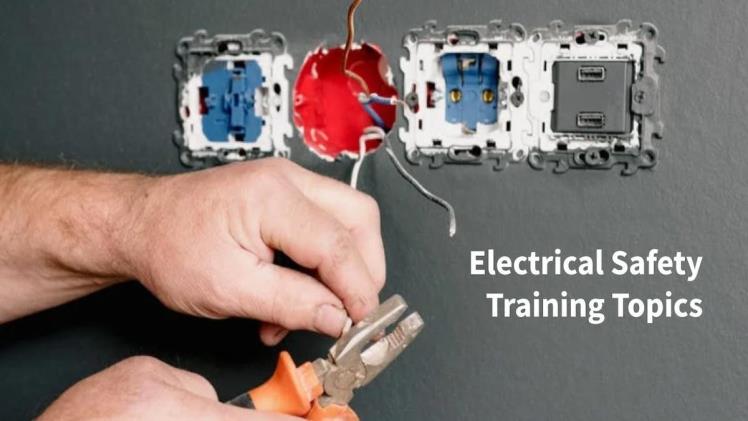Electricity is necessary in industrial and commercial settings, yet it poses significant hazards. However, electrical safety training helps in creating a secure work environment. The training empowers you with the knowledge and skills to avoid electrical accidents. Therefore, understanding the basics of such training is vital in safeguarding workplaces against the dangers associated with electrical systems.
Importance of Electrical Safety Training
The Training Helps You to Identify Hazards
A crucial element of electrical safety training revolves around acute awareness of electrical risks. These training programs educate you on identifying hazards like exposed wires, damaged equipment, overloaded circuits, and improper use of electrical tools. Understanding these potential dangers is foundational to mitigating risks.
Offers a Comprehensive Understanding of Electrical Systems
Electrical safety training broadly covers electrical systems and equipment. It imparts knowledge of voltage, current, resistance, circuits, and the functionality of various electrical devices. This knowledge enables you to grasp the potential dangers of electricity and practice safe handling procedures.
Emphasizes on Safe Work Practices and Protocols
Electrical safety training stresses the implementation of safe work practices and standardized protocols. This includes educating workers on proper lockout/tagout procedures to prevent accidental equipment startup during servicing or maintenance. Additionally, it covers the correct utilization of Personal Protective Equipment (PPE), such as insulated gloves, safety goggles, and flame-resistant clothing.
Offers Training on Emergency Response Preparedness
Electrical safety training also includes guidance on responding to electrical emergencies. You learn the appropriate steps to take during electrical shocks, fires caused by electrical faults, or power failures. Understanding emergency shutdown procedures and the usage of fire extinguishers specific to electrical fires is imperative for a timely and effective response.
You Gain Knowledge on How to Adhere to Regulatory Standards
Understanding and complying with safety regulations and industry standards, such as NFPA 70E, OSHA regulations, and local electrical codes, are fundamental aspects of electrical safety training. Adhering to these standards ensures a safer work environment and mitigates the risk of legal ramifications due to non-compliance.
You Gain Access to Practical Training and Simulation Exercises
Integrating hands-on practical training and simulation exercises reinforces theoretical knowledge. Through practical sessions, you gain experience handling electrical equipment, identifying hazards, and applying safety procedures in simulated scenarios. This hands-on approach enhances learning outcomes and facilitates better retention of critical safety measures.
However, Electrical safety is a dynamic field that requires ongoing education to stay abreast of new technologies and safety protocols. Regular refresher courses and continuous training sessions update you with the latest safety standards.
Cultivates a Safety Culture
Beyond imparting knowledge, electrical safety training aims to cultivate a safety culture within the organization. Encouraging open communication about safety concerns, promoting proactive hazard reporting, and recognizing and rewarding safe practices contribute to fostering a workplace where safety is ingrained in every aspect of operations.
Summary
Electrical safety training is a comprehensive educational framework to instill a deep understanding of electrical hazards and the measures necessary to prevent accidents. By equipping workers with knowledge, practical skills, and a safety-oriented mindset, such training ensures a safer work environment and reduces the risk of electrical accidents. Ultimately, it fosters a workplace culture where safety is a shared responsibility and integral to daily operations.

